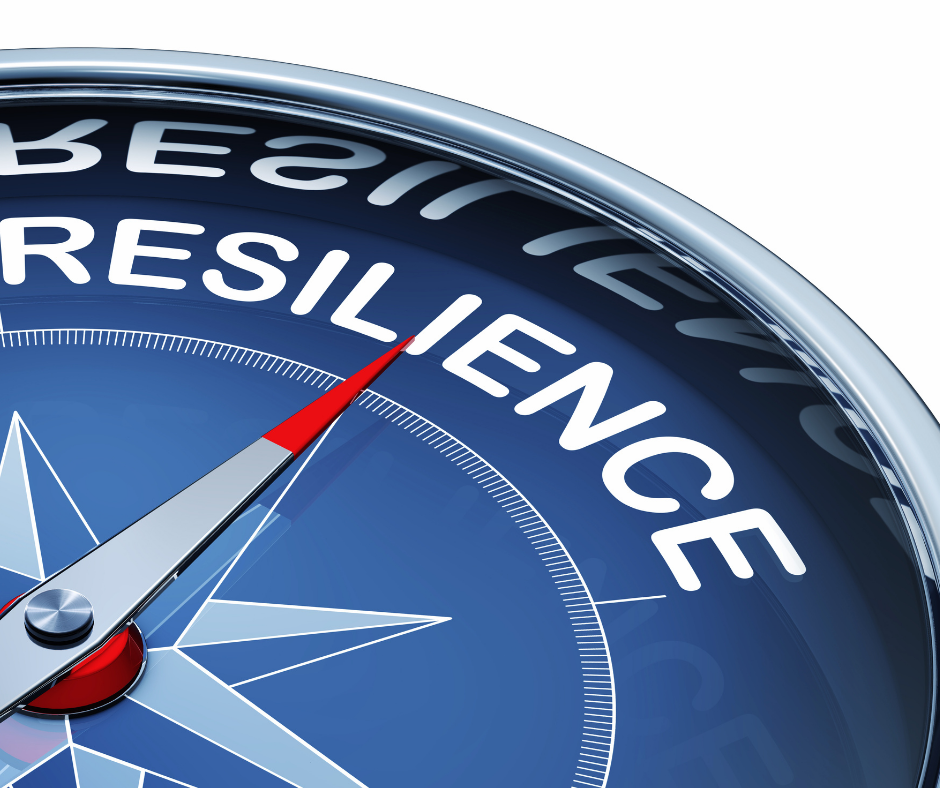Resilience: How to Bounce Back After Tough Times
/Learning how to be resilient and bounce back after tough times can be a huge help for your mental and physical health. Here’s how.
Anyone feel like they’ve been on a rollercoaster, and not the fun kind?
The rollercoaster of emotions is not a ride most people want to get on.
One day you’re up, making all the things happen, and the next day you can barely get out of bed.
You might be upset that you’re not nearly as resilient as you once were.
Your resilience isn’t gone but it might be time for a tune-up.
So, let’s talk about how to develop resilience and bounce back after you’ve experienced a setback.
How to Bounce Back After Tough Times
Feel It
The first step in building resilience and bouncing back after tough times is actually a bit counterintuitive.
To move forward, practice standing still.
We’re always in such a hurry to get through things that we can push down feelings and emotions.
If you’re constantly pushing down your anger and frustration, only to find them re-appearing moments later, try sitting with them.
What we resist persists.
So in order to move through an emotion, we actually need to experience it, feel it in our bodies, and appropriately process it to get to the other side.
Know Your Triggers
Sitting with your feelings will help you identify where you most often get stuck.
Maybe you have an in-law who always pushes your buttons. The next time you’re engaged in a heated conversation with them, take a few deep breaths before responding with a negative knee-jerk answer.
You could also tell them that you’d like to refrain from talking about politics with them or whatever topic you don’t see eye-to-eye on.
When you’re aware of your triggers, you can make plans to adapt.
Come up with some set phrases or actions you can take when your trigger occurs.
Whatever it is, learn to see the trigger coming so you can prepare and protect yourself.
Reflect
If you’re struggling with your resilience and how to bounce back, remember a difficult time in the past that you successfully got through.
Maybe you had a hard move or lost your job or ended a relationship, or experienced all three at the same time. How did you cope before with these setbacks?
Remember the details and how you got to the other side.
If you don’t remember all the details, simply remember that you DID in fact get through the tough time. You did bounce back and were resilient.
Knowing you did it once can be helpful in knowing that you can do it again.
Connect
Whenever I’m feeling stuck, calling a friend always helps. Sometimes I just get stuck playing the same old negative loop in my head. Talking to someone helps me work through any issues.
If you don’t have a reliable or sympathetic ear to talk to, or if you need greater help, turn to a professional.
Friends and family members can often be too close to us and our issues to speak objectively and provide assistance.
A therapist or coach can be a non-biased and helpful influence to help you process what you’re going through so you can come out feeling even stronger and more centered.
Find Joy
When we’re feeling unhappy and unable to bounce back, it’s often because we can’t see anything but the negative things happening in our lives.
If your mind is fixated on all the bad stuff, then that’s all you’re going to see.
That’s when you have to go out and find some joy. Yes, sometimes you have to go find it. Sometimes you have to even create it yourself.
Practicing gratitude is always a good way to find some joy and appreciate what is going well in your life. Focusing on what’s going well can give a quick boost to your day and life.
Another way to find joy in your life is to grab a loved one or just go do something that lights you up.
Immerse yourself in music, art, nature, or spend time with a pet. Whatever it is, make sure you set aside time to experience it. Your brain and body will thank you.
Be Flexible
One thing that can hold us back from being truly resilient is when we’re stuck in our ways and not flexible.
If we need something to happen a very specific way or want people to act in a specific way, we can get really upset when it doesn’t unfold as we want. And spoiler, life often doesn’t go according to plan.
We can’t control a darn thing. Bummer, right?
The only thing we can control is our reaction to things.
So see where you can let up on needing one, and only one outcome.
Where can you release some control so you can enjoy life more as it’s naturally unfolding around you?
Self-Care
Now more than ever, self-care is critical to your resilience and ability to bounce back.
Treat yourself like you would a sick child when you’re going through a tough time.
That could look like saying no to more things or carving out some quiet time to read, write, or take a bath.
Be gentle and nourish yourself so you can repair and heal.
Meditate
One of my favorite ways to develop resilience is by practicing meditation.
Meditation is the simple quieting of the mind and resting the attention on the breath (more details on how to meditate here).
Slowing down and watching your breath will help you become less reactionary. It will give you more time and space to respond to things.
Research has even shown that meditation can reduce stress and anxiety while increasing your focus and memory.
Look Forward
Develop your resilience by looking forward. Put something fun on your schedule.
We often get stuck because we think we’re going to be in a bad mood forever.
Know that the troubling time will pass. And then have something on your calendar to look forward to.
Planning things for yourself or with family or friends can be a great way to bounce back and build resilience after a difficult time.





















